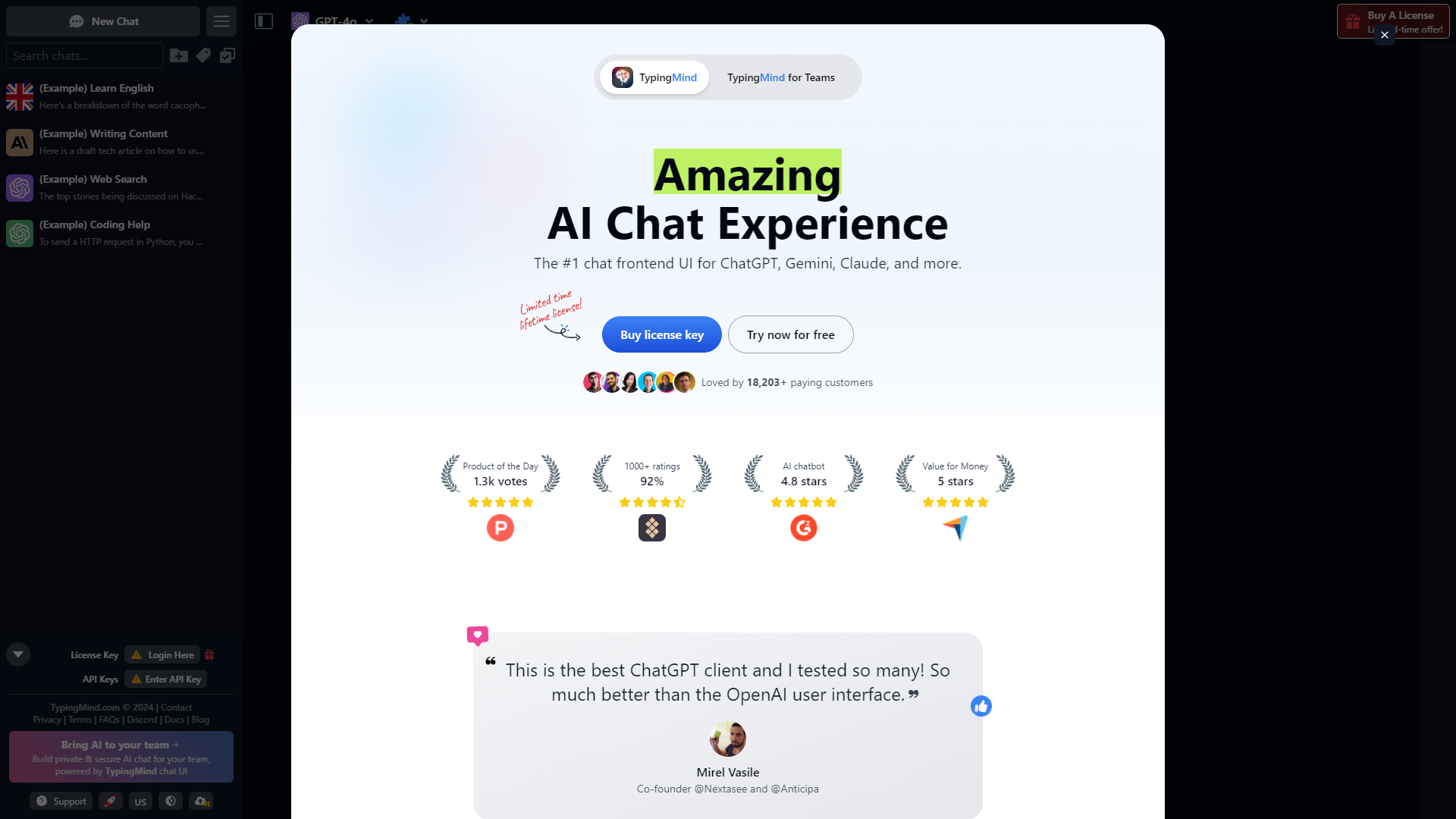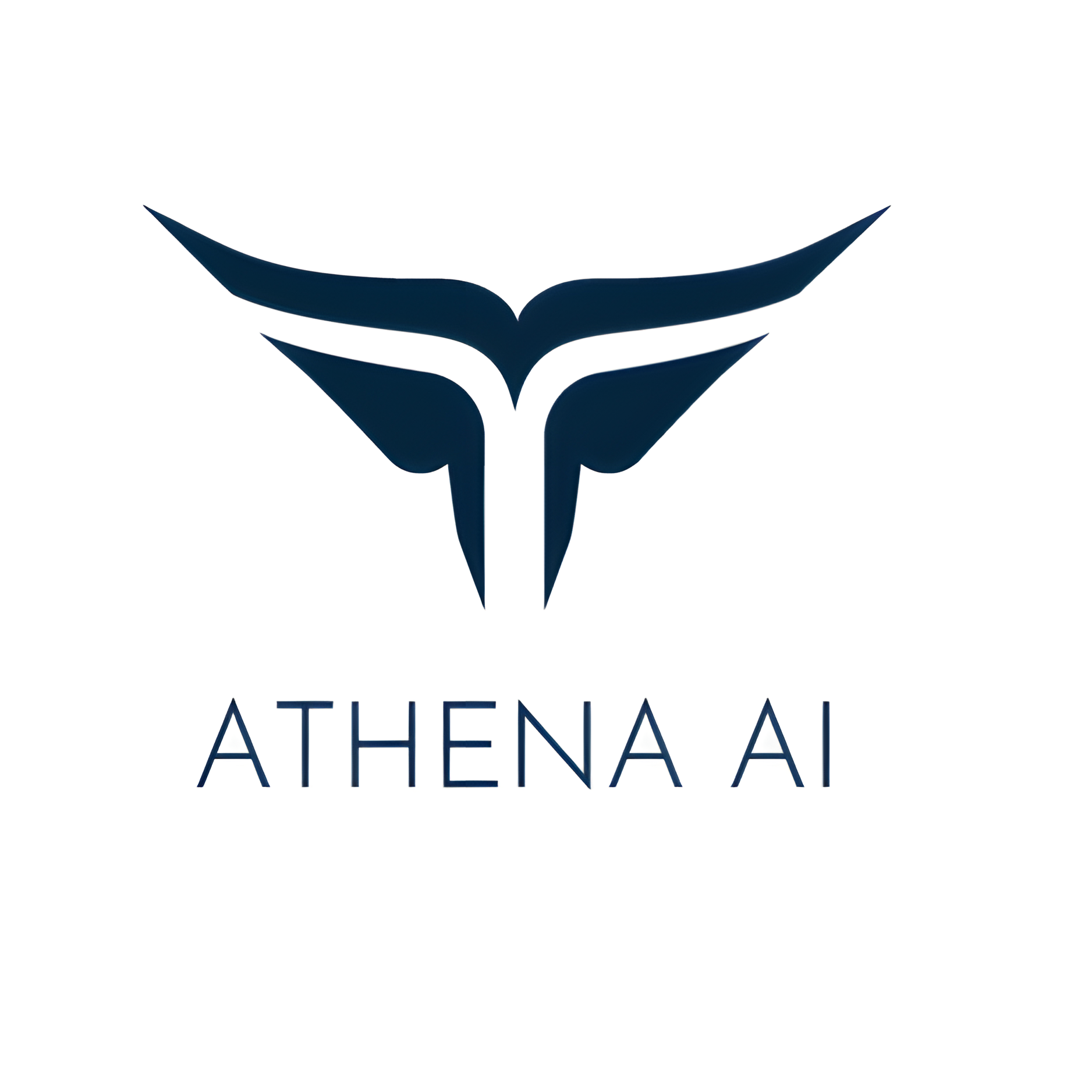Overview
TypingMind is an innovative AI tool designed to enhance team collaboration through a secure and customizable chat interface. It integrates seamlessly with various AI models including ChatGPT, Gemini, Claude, and other custom options, providing a versatile platform for communication and data management. Users can build private AI chats, manage multiple conversation threads, and organize chats with features like folders, tags, and an efficient search function. The platform supports open-source large language models (LLMs) and operates on a pay-for-what-you-use basis, ensuring cost-effectiveness.
The tool is enriched with advanced features such as AI agents, a comprehensive prompt library, text-to-speech, voice input, and capabilities for web search, vision processing, and image generation via DALL-E. TypingMind prioritizes privacy and security, storing data locally with options for cloud synchronization and backup, catering to the stringent requirements of top-tier companies, educational institutions, and professionals.
TypingMind stands out for its user-friendly interface, allowing users to easily customize chat settings, control AI parameters, and utilize a wide array of plugins or even develop their own. The platform's flexibility, speed, and broad integration capabilities make it a preferred choice for users looking to leverage AI technology for enhanced productivity and innovative solutions.
Key features
- Multi AI model support: TypingMind integrates various AI models like ChatGPT, Gemini, and Claude, allowing users to select the best fit for their needs.
- Flexible chat management: Users can manage multiple chats, organize them into folders, tag, search, and export chat data for efficient workflow.
- Customizable user experience: Offers extensive customization options including chat settings, context limits, and the ability to use or create plugins.
- Privacy and security focus: Ensures user data privacy by storing data locally by default, with options for cloud sync and backup as needed.
- Cost-effective usage: Supports open-source LLM models and operates on a pay-for-what-you-use basis, making it economically efficient.
- Advanced integration features: Provides capabilities like text-to-speech, voice input, web search, vision, and image generation with DALL-E.
 Pros
Pros
- Real-time collaboration: Enables multiple users to work simultaneously on the same chat session, facilitating teamwork and instant feedback.
- Language versatility: Supports multiple languages, allowing users to interact and receive responses in their preferred language for better accessibility.
- Continuous updates: Regularly updated to incorporate the latest AI advancements and user feedback, ensuring state-of-the-art performance and features.
- Comprehensive analytics: Provides detailed analytics on user interactions, helping to refine strategies and improve engagement based on data-driven insights.
- Accessibility features: Includes options for text resizing, high contrast modes, and screen reader support, making it accessible to users with disabilities.
 Cons
Cons
- Complex setup required: Initial configuration of TypingMind, especially integrating multiple AI models and plugins, can be daunting for non-technical users.
- High resource consumption: Running multiple advanced AI models and features simultaneously may require significant computational resources.
- Steep learning curve: The extensive customization options and advanced features might overwhelm new users, requiring time to master.
- Dependency on updates: Continuous updates are necessary to maintain functionality with new AI models and integration features, which could disrupt workflow.
- Limited offline functionality: While privacy-focused with local data storage, some features like web search and cloud sync might not be fully available offline.

















